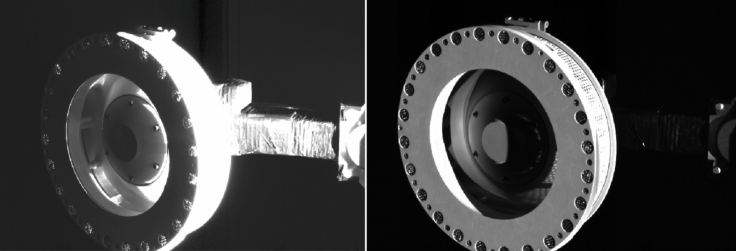On October 20, NASA's OSIRIS-REx spacecraft attempted a crucial touch and go on asteroid Bennu's surface, and during this process, it successfully collected a precious scoop of regolith from the space rock's surface. However, according to the latest updates, some of the collected materials are apparently leaking into space, and the news has been confirmed by Dante Lauretta, OSIRIS-REx principal investigator at the University of Arizona in Tucson.
NASA Failing in Mission?
After the crucial touch and go, researchers at NASA had confirmed that the space probe has successfully grabbed sufficient regolith from the asteroid's surface. But now, after analyzing new images, they came to know that there were so many large particles in the regolith, and it has left the flap open.

"The big concern now is that particles are escaping because we're almost a victim of our own success. Large particles left the flap open. Particles are diffusing out into space. They aren't moving fast, but nonetheless, it's valuable scientific material," said Lauretta, during a press conference hosted by NASA on Friday.
The research team is now trying hard to stow the sample as quickly as possible so that only little material will get lost from the craft. According to researchers, the spacecraft is continually losing 5 to 10 grams of the material they collected from the asteroid. As the loss rate is not steady, the ground control team is still unsure about the exact amount of regolith they lost.
Aimed 60 Grams, Got 400 Grams
While launching OSIRIS-REx, NASA had planned to collect at least 60 grams of dust from the asteroid's surface. However, upon the crucial touch and go, the mission's robotic arm apparently collected 400 grams of regolith. The team is expected to carry out another evaluation process this weekend to ensure that the sample head could be stowed as quickly as possible to protect the valuable grains from the rogue space body.
"We are working to keep up with our own success here, and my job is to safely return as large a sample of Bennu as possible. The loss of mass is of concern to me, so I'm strongly encouraging the team to stow this precious sample as quickly as possible," added Laurette.
A few months back, the OSIRIS-REx mission had found that asteroid Bennu is one such space body which is very much active. Researchers at NASA made this conclusion after detecting particle plumes ejecting off from its surface.









